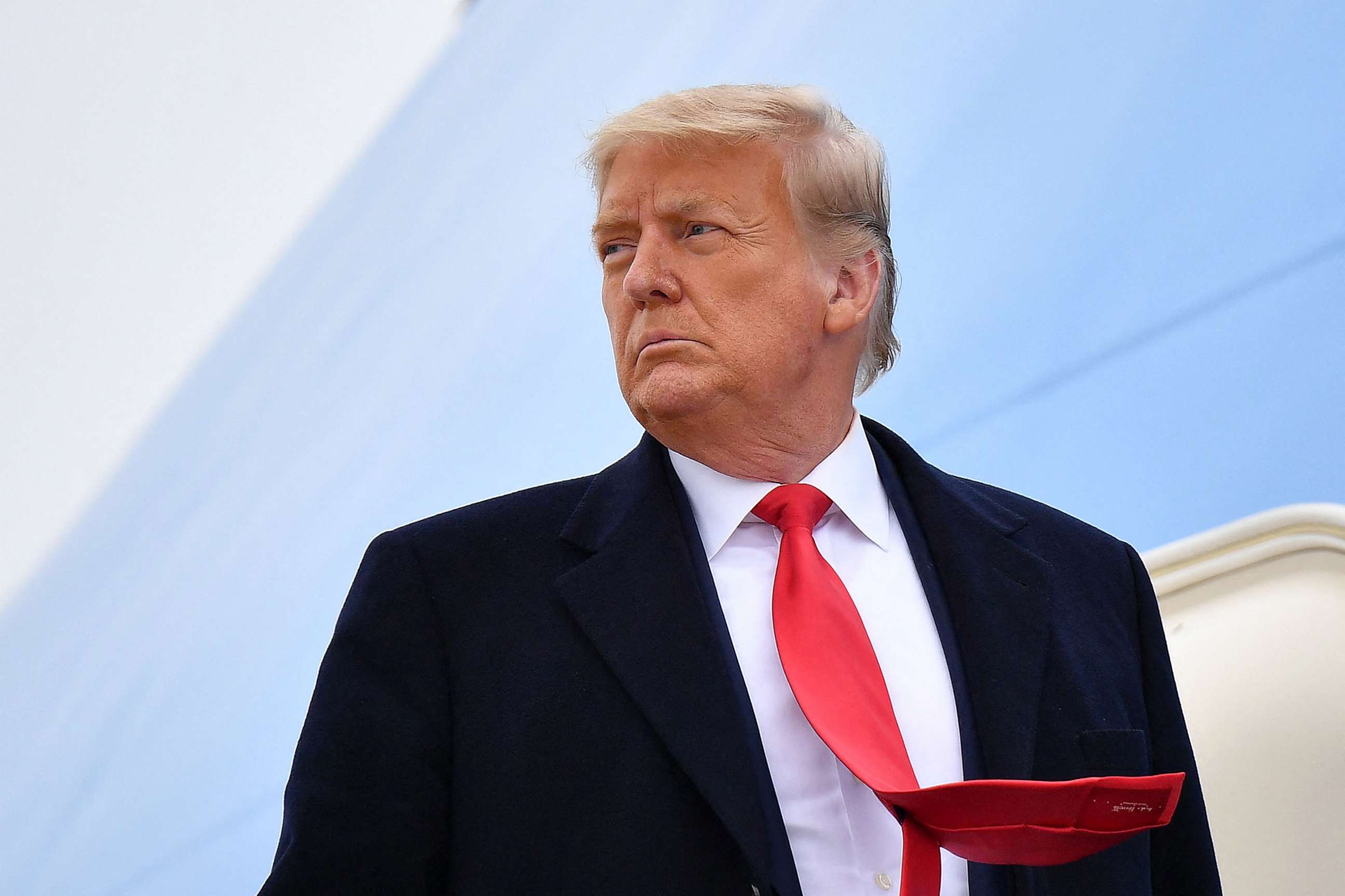Democrats' release of Trump taxes raises questions about audits, transparency and privacy: ANALYSIS
Democrats had long vowed a narrow "legislative purpose" in seeking the records.
Democrats' vote on Tuesday to publicly release former President Donald Trump's tax records caps a years-long legal and political battle over transparency that also poses new questions about partisan gamesmanship, taxpayer privacy and government auditing.
"This is not being punitive. This is not about being malicious," said Chairman Richard Neal of the House Ways and Means Committee, which plans, within days, to release portions of Trump tax returns from 2015-2020.
The committee has initially released a summary of the tax information from that same period.
Neal, D-Mass., said Tuesday that the move -- done along party lines -- was overwhelmingly in the public interest despite federal law that generally prohibits disclosure of individual Americans' tax returns without their permission or a court order.
IRS records lawfully released to one of three congressional tax committees can, under federal law, "be submitted by the committee to the Senate or the House of Representatives, or to both." In other words, made public. But the statute also says that personal identifying information about the taxpayer must be redacted in such an instance; the committee says it is currently scrubbing Trump's returns.
The committee revealed Tuesday that lawmakers learned there had been no audits of the former president's tax returns while he was in office before 2019, despite an IRS policy that they be annually performed. It remains unclear why the IRS delayed its review.
"This rises above politics," Neal said.

The committee's planned release of Trump's records, coming just three weeks after the committee obtained them from the IRS and with Democrats on the verge of surrendering power in the House, has drawn sharp condemnation from Republicans.
While not unprecedented, involuntary public release of an American's tax records is highly unusual and rare.
"Ways and Means Democrats are unleashing a dangerous new political weapon that reaches far beyond President Trump and jeopardizes the privacy of every American," Rep. Kevin Brady of Texas, the committee's top Republican, said in a statement.
For years, the Democratic-led committee argued it was primarily seeking Trump's records for private review to help inform legislation governing presidential ethics and audits.
"Our interest here is in policy," Neal insisted in a 2019 interview as the committee launched its court fight to obtain six years of Trump's records from the IRS, a request that the Treasury Department blocked while Trump was in office.

In October, the House panel told the U.S. Supreme Court that Trump's records were essential to "examining the need for 'legislation on equitable tax administration, including legislation on the President's tax compliance,' and [that] the Committee 'cannot properly evaluate the effectiveness or fairness of the [IRS presidential] audit program... without access to the requested materials."
When the former president's legal team challenged those objectives as "pretext" for a politically motivated release of Trump's private information, the committee disputed those claims.
"The Chairman's request robustly articulated and documented the legislative need for the request," the committee told the high court. The justices ultimately sided with the committee.

"I don't think this about-face is coming as a big surprise, but it risks putting Congress at a disadvantage in future court cases," said Sarah Isgur, an ABC News legal contributor and former Justice Department attorney in the Trump administration.
"The judges and justices who reviewed this case took the committee at its word that they were pursuing a legitimate purpose as legislators and not as political opponents," Isgur said. "Playing politics within days of getting these documents -- and before there's been any of the promised legislative activity -- will undercut their credibility for the next case where they ask the court to defer to their legislative prerogatives."
Democrats insist Trump's records, now in hand, have helped shape legislative proposals to require the IRS to complete a mandatory presidential audit within 90 days of an inauguration and that they are also exploring new regulations around presidential ethics disclosures.
But with Republicans set to assume control of the House in January, those initiatives may be short-lived.
"Going forward, partisans in Congress have nearly unlimited power to target political enemies by obtaining and making public their private tax returns to embarrass and destroy them," Brady said of the precedent Democrats may be setting.
A congressional body has never before released as much private tax information about a current or former president as the Ways and Means Committee is expected to publish about Trump.


In 1974, a joint congressional committee examined four years of former President Richard Nixon's tax returns and publicly released a bipartisan report with key information and analysis.
In 2014, House Republicans voted to authorize the release of some confidential IRS tax records in a bid to investigate allegations of political targeting inside the agency.
Trump became the first president in approximately 40 years not to voluntarily release tax records, shielding from public view details of his complex business and financial dealings.
Before Tuesday's release, previously leaked portions of his records to The New York Times had showed he paid little to no federal income taxes over nearly two decades, between roughly 2000 and 2020.
Some experts said the committee's decision wasn't likely to have larger ramifications.
"I don't think this sets any precedent regarding the release of other tax returns, beyond those of presidents -- especially if the release is framed as seeking to restore a norm of transparency around presidential tax returns," said Kate Shaw, law professor at the Cardozo School of Law and an ABC News legal contributor.
"It does seem to me that Congress should still pursue federal legislation regarding the tax returns of presidents and presidential candidates," Shaw said, "and I don't think this release does or should prevent Congress from doing that."




